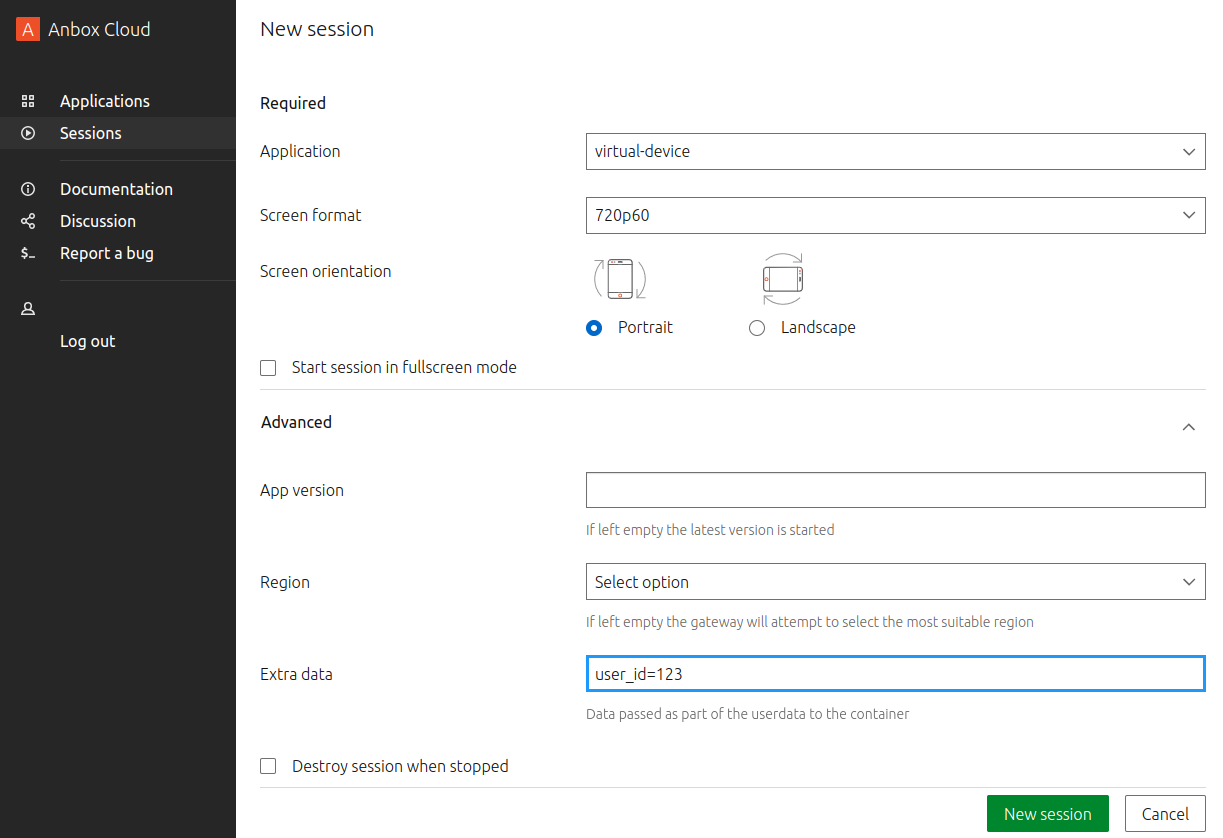You can pass custom data to your application, which you can then use in addons or hooks. For example, you might want to pass user IDs, application configuration or display settings.
The user data that you pass in is stored in the /var/lib/anbox/userdata file in the instance, and your hooks can access it from this file.
The structure of the /var/lib/anbox/userdata file and the way how you pass in the data depends on whether you pass the data when launching an instance or when starting a streaming session.
Pass custom data when launching an instance
When you launch an instance, you can pass in custom data through the --userdata or the --userdata-path flags:
--userdatatakes a string and stores the provided data in the/var/lib/anbox/userdatafile in the instance.--userdata-pathtakes a file name and copies the contents of the file to the/var/lib/anbox/userdatafile in the instance.
In both cases, the /var/lib/anbox/userdata file will contain exactly the data that you provide. The data must be in string form (to send binary data, you must encode it as Base64 text). The size limit for the data is 10 KB.
Pass custom data when starting a streaming session
When you start a streaming session, you can pass in custom data through the Anbox Stream Gateway:
-
When starting the session through the web dashboard, provide your custom data through the “Extra data” field.

-
When starting the session through the Stream Gateway API, provide your custom data through the
extra_datafield. See Create session in the Anbox Stream Gateway documentation.
In both cases, the data is added to the /var/lib/anbox/userdata file in JSON format. This file already contains data added by the Stream Gateway for the streaming session. The custom data is available under the extra_data field. For example:
{
...
"extra_data": "user_id=123"
}
To retrieve the data, use a command like cat /var/lib/anbox/userdata | jq -r .extra_data, which would return user_id=123 in the example.